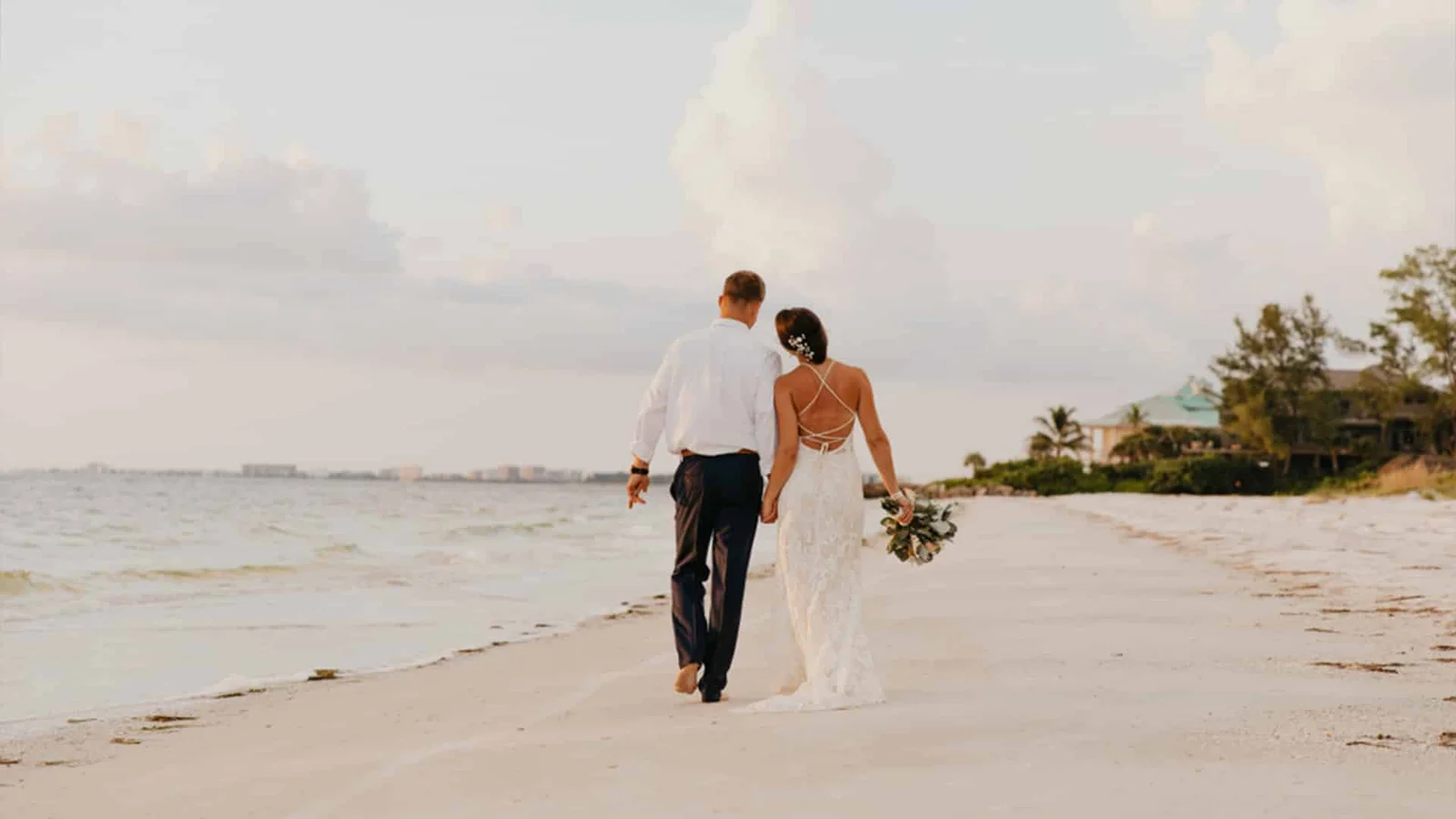One of the first decisions you’ll make after getting engaged—once you’ve soaked in the moment and celebrated the milestone with family and friends—is choosing your wedding date. Figuring out whether you want a long engagement (think 18 months or more) or a short one (around six months) will help shape your wedding planning roadmap. Once you’ve set that timeline, you’ll know exactly what needs to be done—from saving up and booking key vendors to sending save-the-dates to your guests.
Since every couple sets their own pre-wedding timeline, no two planning journeys are the same. Some couples elope after just a few weeks of prep, while others spend two years or more perfecting their big day. But on average, how long does wedding planning really take?
Meet the Expert
Nicole-Natassha Goulding is the owner of Chic by Nicole, a luxury wedding planning service. Since 2015, she’s been organizing weddings in Montreal and has won multiple awards for her work.
Below, award-winning planner Nicole-Natassha Goulding shares the average wedding planning timeline—explaining when couples should start, how much time to allocate for major tasks, and what to consider for a destination wedding.
How to Plan a Wedding in 6 Months or Less
How Long It Takes to Plan a Wedding
Experts say planning a wedding typically takes about a year. “The general consensus is that one year is enough time to plan a standard local wedding,” says Goulding. This gives couples enough time to book a venue, hire vendors, find a wedding dress, and more.
While this estimate is based on the time needed to plan an event from start to finish, remember that many factors—like seasonality and venue popularity—can affect whether a year is realistic for your area. That said, almost any timeline is possible, depending on the type of wedding you want.
When to Start Planning Your Wedding
Many couples and their families rush into wedding planning without taking time to enjoy their engagement. That’s why Goulding recommends waiting at least 30 days before diving into the details. “My advice is to wait a month after getting engaged before starting to plan,” she says.
However, there are a few things to sort out before full-on planning begins. During this time, couples should discuss their wedding vision and priorities, set a firm budget, and pick a date before reaching out to vendors. “Your budget will guide all your decisions, so having a clear spending limit is key,” says Goulding. One month is usually enough to make these initial choices.
What to Do First When Wedding Planning
Not all planning tasks are equal—some need to be done much earlier than others, which is why weddings usually take at least a year to plan.
Book a Venue
Securing a venue is one of the biggest tasks. “Finding the perfect venue is time-consuming,” says Goulding. “Between visits, pricing menus, and discussing options, it’s one of the most labor-intensive steps.” Booking early also ensures you get your preferred date before other couples snag it.
Find a Wedding Dress
Another top priority is the wedding dress. “A common mistake is not shopping early enough,” Goulding notes. “Brides end up paying rush fees or settling for off-the-rack options.” Start shopping at least a year in advance—some designers need six to eight months to create and ship the dress, plus time for alterations.
Hire Vendors
If you have your heart set on specific vendors—like a celebrant, band, makeup artist, florist, photographer, or baker—book them as close to a year ahead as possible to secure your date.
Send Save-the-Dates
Getting save-the-dates out early ensures guests mark their calendars, especially out-of-town attendees who need to arrange travel. Reserve hotel blocks as soon as you have your date and location locked in.
Choose the Wedding Party
Ask your wedding party early so they can plan events like the bachelorette party and have time to find their outfits.
Plan Your Honeymoon
If you’re leaving right after the wedding, start researching flights and hotels at least six months ahead for the best deals.
How to Stay on Track When Planning Your Wedding
How do you stick to a one-year timeline? Hiring a wedding planner (or coordinator) helps—they keep you on schedule and ensure nothing falls through the cracks. If you’re DIY-ing it, tools like wedding planning books, magazines, and checklists (like our ultra-detailed one) can guide you on when to send invites, contact florists, sample caterer menus, and more.
Goulding also recommends keeping a wedding binder or Excel spreadsheet. “List every task, big or small, and break them down by month to stay organized,” she says. Apps like ClickUp and Asana can also help. “Project management tools are great for delegating tasks, keeping lists, and tracking progress.”
How Long It Takes to Plan a Destination Wedding
Destination weddings usually take 12 to 18 months to plan. The longer timeline accounts for language barriers, multiple site visits, and coordinating with overseas vendors. “Destination weddings are a different beast,” says Goulding. “Start planning ASAP.” Guests also need extra time to request time off and book travel.
If you’re planning a destination wedding, Goulding strongly recommends hiring a specialist planner. “This should be your first step, followed by choosing a location,” she says. “The location can impact your date, legal ceremony options, and more.”
